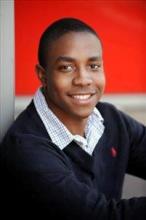Julius Mitchell
The decision to major in Ethnicity, Race & Migration shed a new light on my undergraduate education. The major privileges its students with the opportunity to rigorously study the human condition through multiple academic disciplines. As an African-American male from a low-income household in Chicago, I found countless compassionate and supportive professors with which to delve deeply into the theories, research methodologies, histories and discourses that frame the everyday challenges of marginalized communities. The course material enriched my passion for social justice, helping me build a solid foundation with which to articulate and advocate on behalf of the poor and disadvantaged. I took courses that spanned genocide in the developing world, trans-Atlantic visual art, the HIV/AIDS epidemic in Sub-Saharan Africa, international human rights law and health disparities in urban ghettoes across the United States. Through the community-based learning program co-coordinated by some of the ER&M faculty and staff, I volunteered for a semester at JUNTA for Progressive Action where I fought to expose the prevalent issue of wage theft. This service opportunity led me out of the Yale bubble; thrust me into opposing a local injustice early in my undergraduate career; illuminated my coursework on immigration and citizenship; and opened the door to countless more engagements with the city of New Haven.
Because of ER&M, I now have the vocabulary to describe and knowledge to share the intricate links between the past and the present. Mainstream news often looks at the surface of issues surrounding the poor, but current events are informed by nuanced histories shaped through the eyes of many, sometimes conflicting, perspectives. The strength of ER&M, then, is that it teaches its students to effectively trace these histories through primary and secondary research—eventually bringing silenced voices to the forefront of discussion. My senior thesis compiled historical archives and urban ethnography to stitch together a social organization of several black barbershops situated in ghettoes on the South Side of Chicago. My mom has worked as a licensed hairstylist for over two decades, and my field research revealed a range of stimulating realizations about my own story as well as the pivotal role black barbers play in uplifting the urban poor.
Thanks to the relentless efforts of amazing professors like Alicia Camacho, Elijah Anderson, Kobena Mercer and Birgit Rasmussen, I am more familiar with the language to study people of African descent, especially how to develop points of inquiry and analysis about the ties between structural poverty and the African-American experience. My most meaningful courses and strongest relationships with professors stemmed from my work as an ER&M student. I cannot express how grateful I am to everyone who works (and has worked) so tirelessly to ensure that Yalies can pursue this major.
Bio:
Julius graduated from Yale College with distinction in Political Science and Ethnicity, Race & Migration. In August 2013, he will be joining the Yale-China Teaching Fellowship at their rural site in Anhui Province. While there, he will expand his proficiency in Mandarin, sharpen his competency in Chinese culture and teach English to students at Xiuning Middle School. In addition to language teaching and learning for two years, Julius looks forward to eating authentic Chinese food, perfecting his calligraphy skills, teaching himself to play guitar and building strong relationships with his students and their families. He plans to put his Ethnicity, Race & Migration knowledge to use by eventually publishing a book about living in rural China from an African-American perspective.
